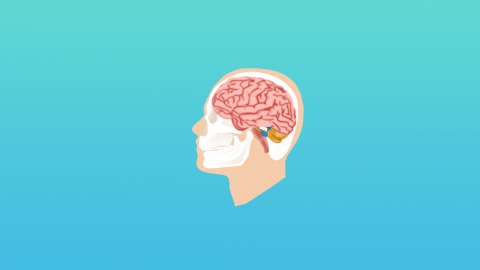What are the causes of coma due to head trauma?
Generally, coma caused by traumatic brain injury may be due to reasons such as cerebral concussion, impaired cerebral circulation, cerebral contusion, intracranial hematoma, or brain edema. If this occurs, immediate medical attention is recommended. Detailed explanations are as follows:
1. Cerebral Concussion
Head trauma can lead to cerebral concussion, causing temporary dysfunction of nerve cells and resulting in loss of consciousness and coma, usually for a short duration. The patient should be laid flat, with the airway kept clear and unnecessary movement avoided. Consciousness and respiration should be closely monitored; if the coma persists, prompt medical attention is necessary.
2. Impaired Cerebral Circulation
Traumatic injury may affect cerebral blood vessels, leading to circulatory impairment, cerebral ischemia and hypoxia, which can cause coma, possibly accompanied by pallor. Vital signs should be monitored immediately, and intravenous administration of dextran 40 glucose injection, normal saline, or similar fluids may be necessary to maintain cerebral circulation.

3. Cerebral Contusion
Brain tissue may become bruised from external impact, causing damaged nerve cells and bleeding, which can lead to coma, often accompanied by headache and vomiting. Under a physician's guidance, medications such as methylprednisolone sodium succinate for injection, cytidine diphosphate-choline sodium injection, and vitamin B6 injections may be used to reduce nerve damage.
4. Intracranial Hematoma
Following brain trauma, ruptured blood vessels within the skull can form a hematoma that compresses brain tissue, causing coma, possibly accompanied by elevated blood pressure and slowed respiration. Prompt imaging studies are necessary to determine the hematoma's extent, and under medical guidance, drugs such as mannitol injection, glycerol fructose injection, and sodium aescinate for injection may be used to lower intracranial pressure.
5. Brain Edema
Brain edema following traumatic injury can elevate intracranial pressure, compressing neural centers and causing coma, which may be life-threatening in severe cases. Under medical supervision, medications such as furosemide injection, dexamethasone injection, and sodium valproate injection may be administered to reduce swelling and prevent seizures.
In daily life, it is important to strengthen safety precautions to avoid head injuries; if traumatic brain injury occurs, immediate first aid measures should be taken and medical care sought; post-surgery, follow medical advice for care, attend regular follow-up appointments, and monitor brain recovery.







